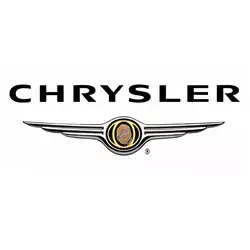Chrysler 300 Tire Pressure
Most common recommended tire pressure for Chrysler 300 can range from 30 psi to 32 psi depending on year of production, trim and OEM tire size, but it maybe different for older models. It is imperative to confirm the exact tire inflation for your Chrysler 300 to ensure safety on the road. Always refer to your vehicle owner's manual for the correct tire pressure designated by vehicle's manufacturer.
Select your Chrysler 300 production year to see its recommended tire inflation.
| Model Year | Front Tires | Rear Tires |
|---|---|---|
| 2023 Chrysler 300 | 32 psi | 32 psi |
| 2022 Chrysler 300 | 32 psi | 32 psi |
| 2021 Chrysler 300 | 30 - 32 psi | 30 - 32 psi |
| 2020 Chrysler 300 | 30 - 32 psi | 30 - 32 psi |
Recommended Tire Pressure for Chrysler 300
Maintaining the recommended tire pressure for a Chrysler 300 vehicle is vital for several key reasons, directly impacting safety, performance, and economic aspects of driving. Firstly, the correct tire pressure ensures optimal contact between the tire and the road, greatly enhancing the vehicle's handling and stability, especially at higher speeds or in adverse weather conditions, thus significantly reducing the risk of accidents. It also plays a crucial role in optimizing tire longevity by preventing uneven wear, thereby extending the life of the tires and reducing the need for premature replacement. Moreover, tires inflated to the manufacturer's recommended pressure are more efficient at reducing rolling resistance, which not only improves the fuel efficiency of the Chrysler 300, saving drivers money on fuel costs over time but also contributes to lower emissions, aligning with eco-friendly driving practices. Furthermore, maintaining the correct tire pressure is essential for achieving the designed performance characteristics of the Chrysler 300, enhancing the overall driving experience by ensuring the vehicle operates as intended by Chrysler engineers. Consequently, regularly checking and adjusting the tire pressure on a Chrysler 300 not only safeguards the vehicle's occupants by maximizing safety and handling characteristics but also promotes tire longevity, improves fuel economy, and supports environmental conservation efforts, marking it as a simple yet profoundly impactful routine maintenance task.

All listed guides, data and/or calculations are for informational purposes only. TirePressure.com does not warrant or make any representations regarding the accuracy of or the results of the use of this information. Always refer to vehicle owner's manual for the correct tire pressure configuration.